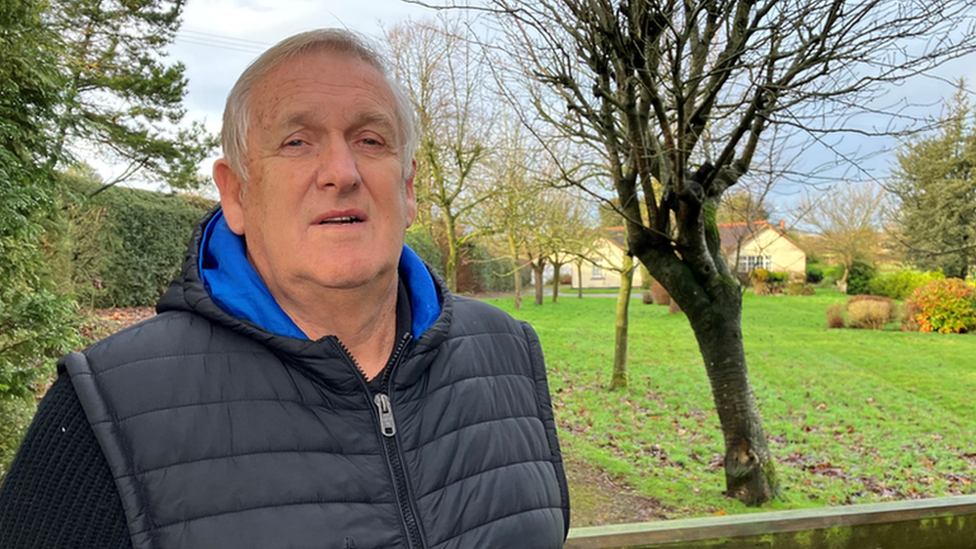Ghost villages where homes needlessly bought by HS2
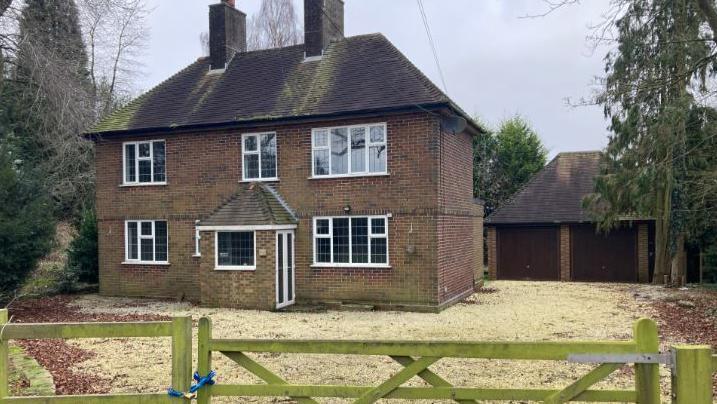
Homes remain empty after HS2 bought dozens of properties
- Published
Dozens of homes in two wealthy villages remain empty after being needlessly bought by HS2. The BBC spoke to residents left behind who claim they have been plagued by squatters and cannabis factories.
Fred Smith remembers the moment security guards descended on a remote country house in his village.
In dramatic scenes, they had arrived to evict a commune led by a bearded man squatting inside.
It was the culmination of a year-long stand-off. Mr Smith recalls several children were believed to be among those living there.
For the villagers, this was just one example of once-loved family homes being targeted after they were bought by HS2 and later left to rot.
About 50 houses in Madeley and Whitmore in Staffordshire were purchased by bosses to make way for the now-scrapped second part of the high-speed line from Birmingham to Manchester.
Three months after its cancellation, properties worth millions of pounds are still standing idle.
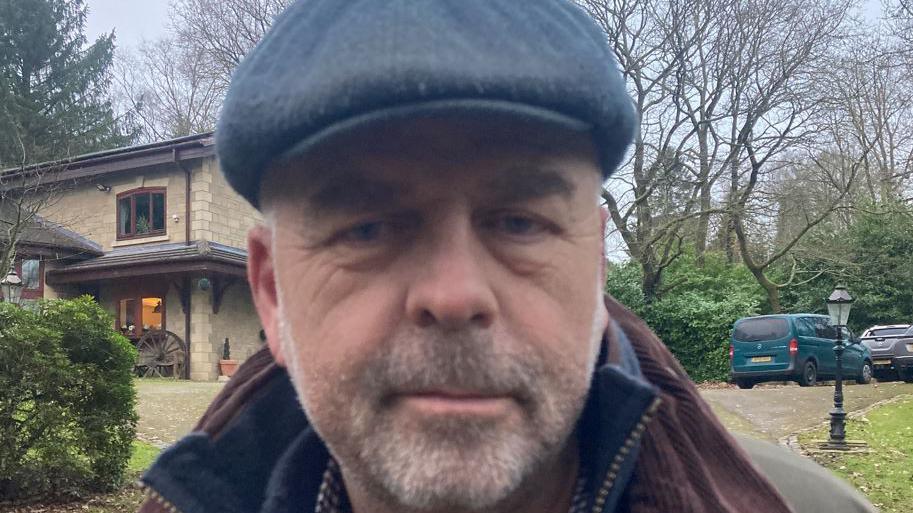
Fred Smith lives in Whitmore
Mr Smith, who lives in Whitmore, said 10 out 13 homes in one previously-desirable cul-de-sac remained empty.
He recalled the day HS2 security staff circled one isolated property occupied by squatters. A large response team came next while the dwellers stood firm.
"He seemed to know what he was doing," Mr Smith said of the group's leader.
"There was quite a number of them, including children."
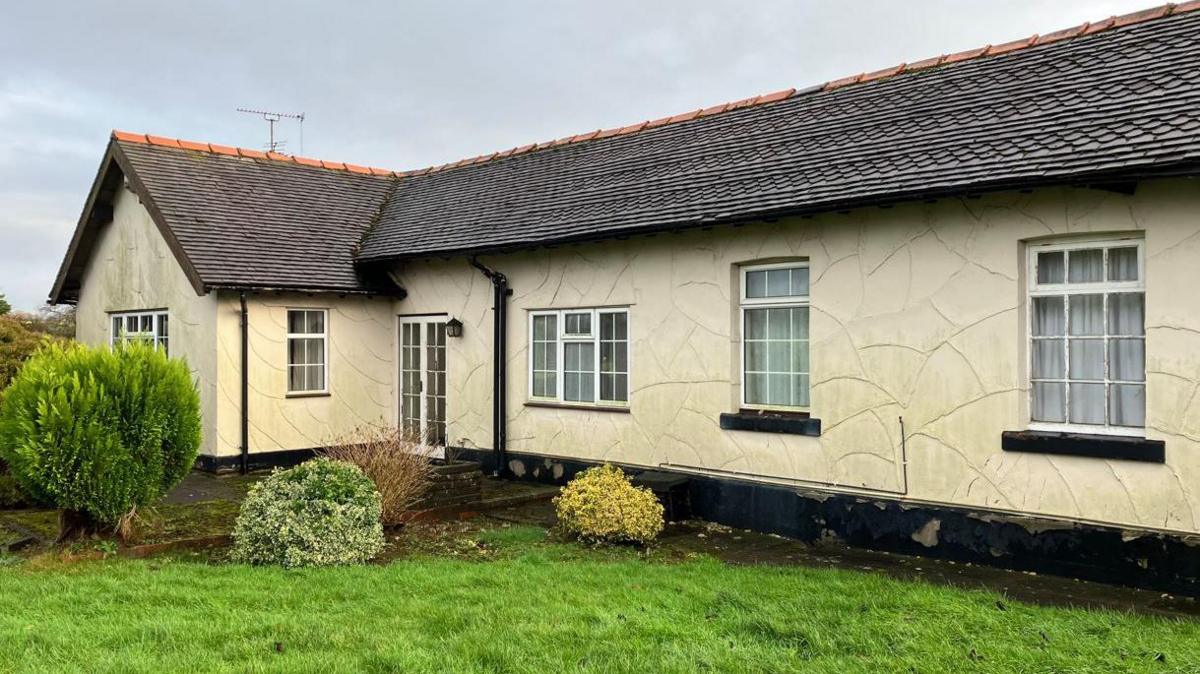
One bungalow is now "uninhabitable" after being empty for almost a decade
The business owner said reports of anti-social behaviour had grown due to the neglect of the abandoned properties.
It is approaching a decade since some of the homes were purchased.
"They have stepped up security but [the properties] are vulnerable without a doubt," Mr Smith said.
His neighbours had reported one house being used as a cannabis factory.
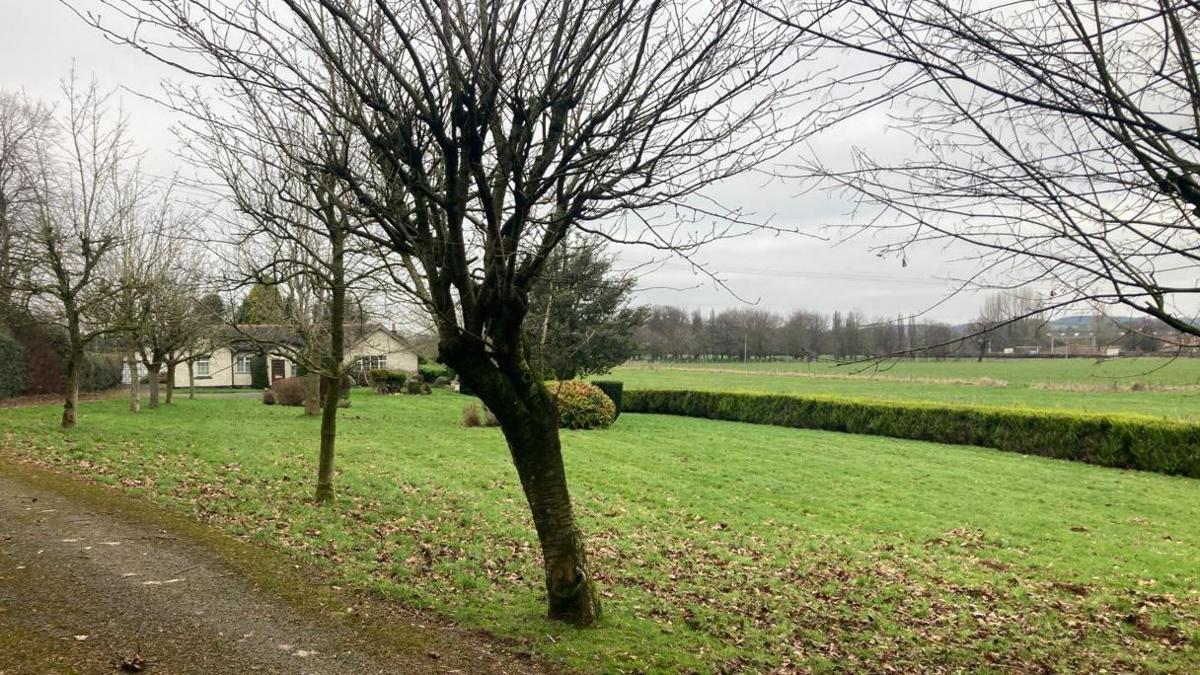
About 50 houses in Madeley and Whitmore in Staffordshire were purchased by HS2
The scrapping of the line's northern route was met with a mixture of rage and relief when it was announced last year by Rishi Sunak.
Many expressed fury at what they perceived as a waste of time and money, and some said their villages have been decimated for no reason.
The prime minister defended the controversial decision, saying the government would instead invest in transport projects across the North of England.
Phil Robinson told BBC Radio Stoke that a bungalow once owned by his mother in Madeley had been empty for seven years.
"It's a tragedy really," he said. "What do you do? The government has got the power."
Mr Robinson added: "When my mother was living down here on her own I came down every day.
"My dad loved it down here. It's a beautiful place but it will be uninhabitable now."
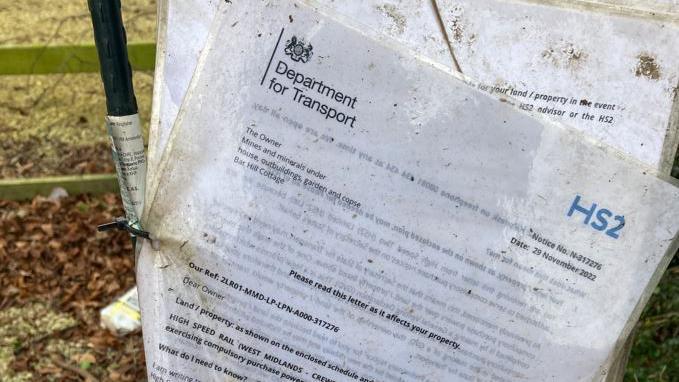
The government will set out more details on its programme to sell land soon
The issue was first raised at a meeting of Newcastle Borough Council last year.
One resident told councillors that their once desirable villages had become areas of chained-up gates, eerie houses and security guards.
"Three properties costing over £3m [have been] turned into cannabis plantations," they said.
"Another property worth £1.4m has been taken over by squatters which would never have happened if these properties had been let out."
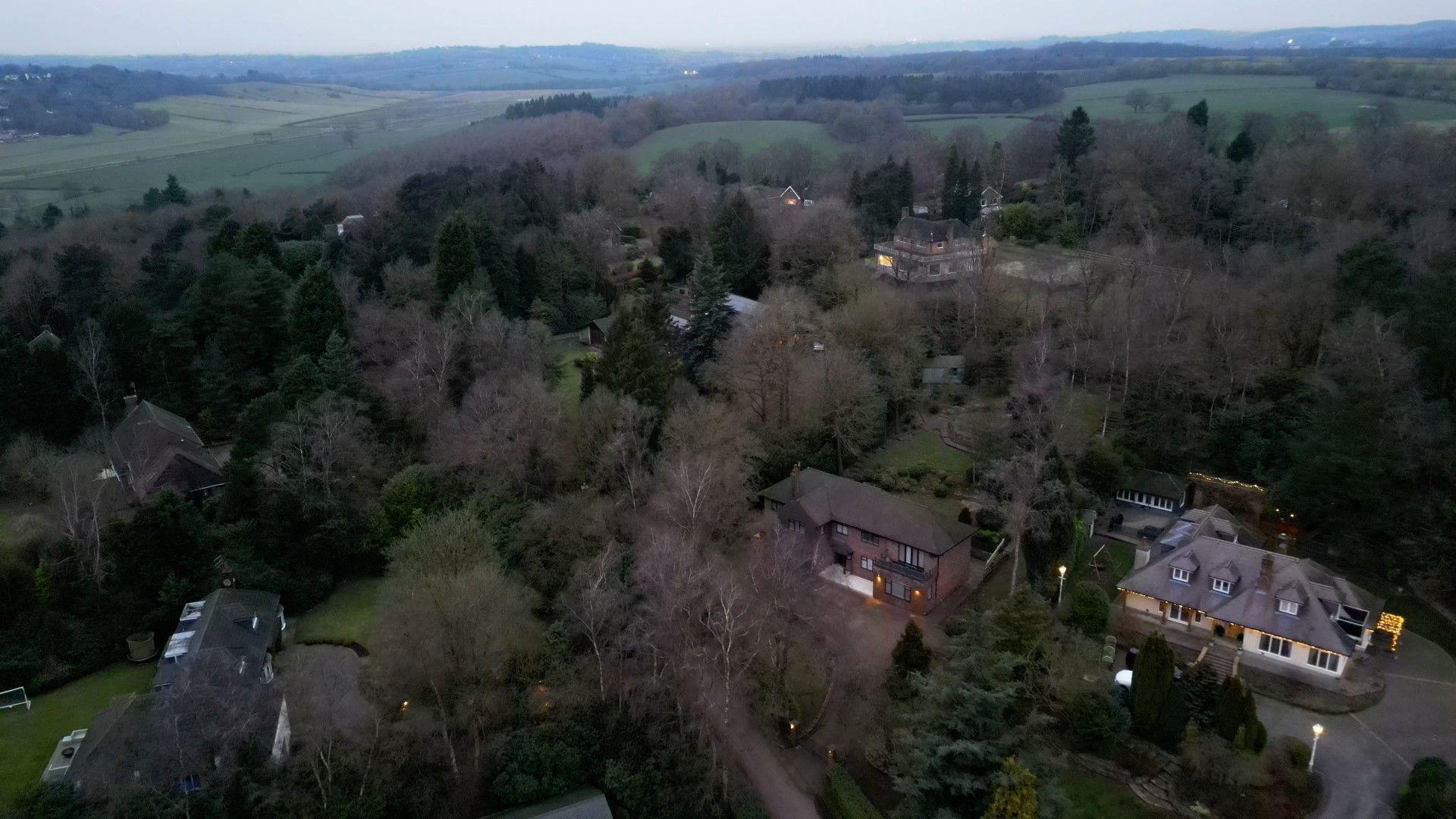
One resident told councillors they were "disgusted"
HS2 previously confirmed it had taken legal action forcibly evict squatters.
The company behind the multibillion-pound infrastructure project also insisted it would make sure properties it owned were not empty.
"The only exception to that is where getting those properties up to a lettable standard is not value for the taxpayer," a spokesperson said.
When the BBC contacted HS2 about empty homes last week, we were told it was a matter for the government.
It has since said: “All homes acquired for the HS2 project in Madeley and Whitmore Heath were sold voluntarily – that is without using any compulsorily purchase powers.
"We let acquired properties where it is financially advantageous for the taxpayer. When that is not the case, they are properly maintained and kept secure.”
"We're continuing to develop a clear programme for selling land no longer needed for Phase 2 of HS2," a Department for Transport statement read.
The statement added bosses would make sure their approach provided value for the taxpayer and fully engaged with people impacted.
BBC News understands the government will set out details on its programme to sell unused land in due course.
All sales will be in accordance with Treasury rules on the use of public money but it is unclear how long the process will take.
Correction 17 January: This article originally said that dozens of homes in Madeley and Whitmore were sold under compulsory purchase orders and has been amended to make clear that all of the homes were sold voluntarily.
Follow BBC West Midlands on Facebook, external, X,, external and Instagram, external, Send your story ideas to: newsonline.westmidlands@bbc.co.uk, external
Related topics
- Published12 January 2024
